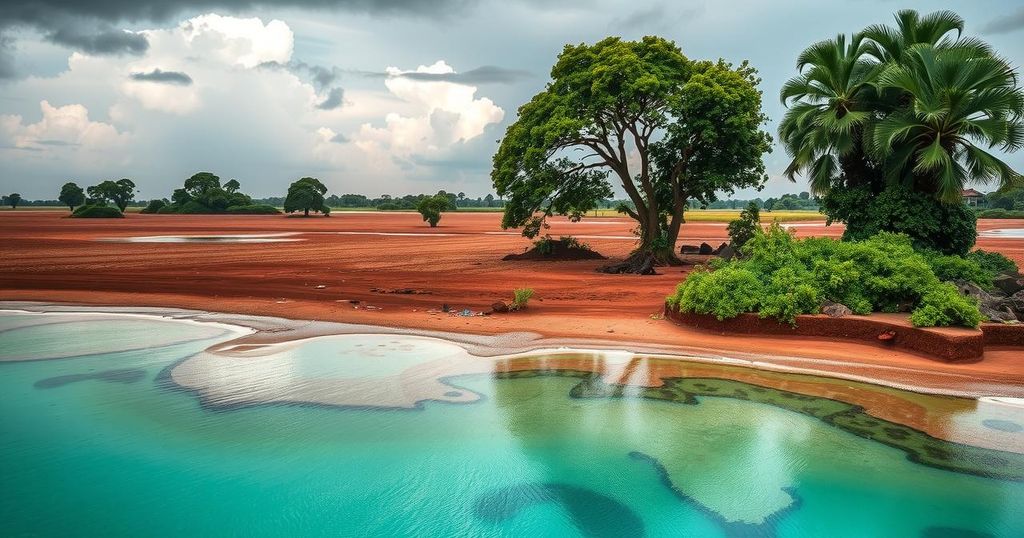Mozambique and Malawi Face Growing Climate Challenges with Cyclone Chido

Cyclone Chido has caused widespread destruction in northern Mozambique, displacing thousands and revealing the increasing frequency of severe weather events linked to climate change. The cyclone led to fatalities, significant infrastructural damage, and heightened concerns about food insecurity and disease prevalence. Experts stress the need for improved disaster preparedness and international support to address the root causes of climate challenges faced by the region.
Cyclone Chido has inflicted significant destruction across northern Mozambique, having traveled from the Indian Ocean island of Mayotte to the mainland on December 15. The cyclone has displaced thousands in Mozambique’s Cabo Delgado and Nampula provinces, compounding the severe weather challenges already faced by the region. With previous cyclones such as Freddy in 2023 and Idai in 2019, Southern Africa is increasingly vulnerable to extreme weather events, reflecting a worrying trend linked to climate change.
Lucy Mtilatila, Director of Climate Change and Meteorological Services in Malawi, noted that the recurrence of cyclones has dramatically increased, with such events now occurring much more frequently than in the past. “It’s all because with global warming, the temperatures on the Indian oceans are increasing more than normal. And that is creating a conducive environment for these cyclones to develop,” she stated. This indicates a dire shift in weather patterns exacerbated by climate change.
The recent cyclone showcased its ferocity with wind speeds of up to 260 km/h (160 mph) and significant rainfall exceeding 250 millimeters (10 inches) in merely 24 hours. The consequences have been devastating, with reports of fatalities and extensive damage to infrastructure, including homes, schools, and healthcare facilities. Guy Taylor from UNICEF expressed grave concerns regarding the immediate impacts and the longer-term ramifications that could affect children’s education and increase the threat of waterborne diseases.
In response to the disaster, emergency shelters have been established for approximately 2,800 displaced individuals; however, ongoing assessments are still needed to fully understand the extent of the damage. Despite these challenges, Malawi seems better prepared to manage Cyclone Chido than in the past due to improved coordination efforts among various sectors.
Looking ahead, communities are urged to focus on long-term resilience strategies. Mtilatila emphasized the necessity of planning for sustainable settlements and adaptive farming practices to mitigate future impacts. The Malawian government preemptively mobilized food and relief supplies, targeting the ongoing hunger crisis exacerbated by preceding environmental challenges. With climate change amplifying the frequency of such extreme weather, calls for increased international support have intensified, highlighting the urgent need to address the underlying causes of global warming.
The article discusses the severe impact of Cyclone Chido on Mozambique and Malawi, indicating a troubling trend of increasing cyclone frequency and intensity as a consequence of climate change. Southern Africa has experienced a series of destructive storms in recent years, leading to significant displacement and damage to vital infrastructure, raising alarms about the region’s vulnerability. Experts emphasize the importance of disaster preparedness and long-term strategies to enhance resilience amid ongoing climatic challenges.
Cyclone Chido’s impact underscores the escalating threat of climate-related disasters in Southern Africa, drawing attention to the urgent need for effective disaster preparedness and resilience building. With the increasing frequency of such severe weather events, it is vital for governments and humanitarian organizations to intensify their efforts in response, providing immediate relief while also addressing long-term climate adaptation strategies to safeguard vulnerable communities.
Original Source: www.dw.com







